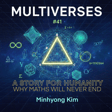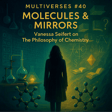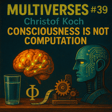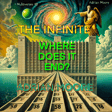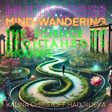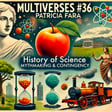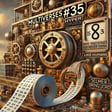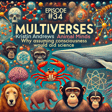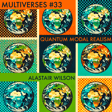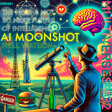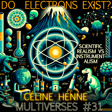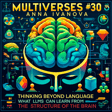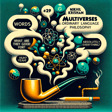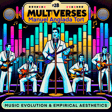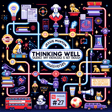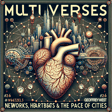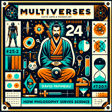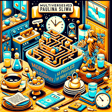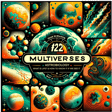
6| Christian Bök — Poetry, Constraints, DNA & The Xenotext
Christian Bök is an award-winning poet pushing the boundaries of the medium and exploring the capabilities of language itself. Rather than focusing on self-expression, Christian uses poetry as a laboratory for understanding language — probing its plasticity and character.
His notable work, the bestseller Eunoia, draws inspiration from the avant-garde rules of Oulipo and takes it a step further by restricting each chapter to only one vowel. This constraint leads to the creation of such singular phrases as "Writing is inhibiting. Sighing, I sit, scribbling in ink this pidgin script."
For the past two decades, Christian has pursued an even more ambitious project, The Xenotext. This project involves enciphering an "alien text" within the DNA of a resilient bacterium, Deinococcus radiodurans. One goal of The Xenotext is to create a text that could outlast human civilization. To add to the genomic challenge Christian has set a remarkable rule: the symbols of the text should be interpretable in two different ways, resulting in two poems that are encoded within the same string.
Christian combines scientific techniques, trial and error, and computer programming to construct his poems, adhering to the rules he has established within his own poetic universe. Furthermore, he transforms art back into science by employing gene-editing to inscribe his poetic creation into the "book of life," the DNA of a living organism.
Instead of looking back and inwards (the ideal of “emotion recollected in tranquility”, Christian looks outwards and to the future, fusing science and art to produce uncanny, unforgettable verse.
References:
- Christian’s website: umlautmachine.net
- His Twitter: @christianbok
- More detailed notes from this episode at: multiverses.xyz
